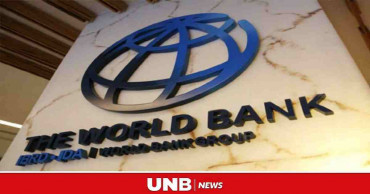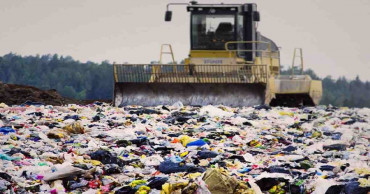Bangladeshi manufacturers
BBS to invite fresh tender for 395,000 tabs from local manufacturers
Bangladesh Bureau of Statistics (BBS) will invite fresh tender to procure 395,000 tabs (tablets) from Bangladeshi manufacturers.
Finance Minister AHM Mustafa Kamal informed this following the rejection of a tender proposal by the Cabinet Committee on Public Purchase (CCPP) on Monday.
He said the cabinet body rejected the proposal due to the deficit of the supply-firm in the selection criteria.
READ: 40 pc people know about handwashing with water and soap: BBS survey
Earlier, Fair Electronics Limited was selected by the BBS as supplier of the bulk tabs at a cost of Tk 537.12 crore.
Kamal noted two Bangladeshi firms were selected by the BBS and both were local manufacturers of the electronic devices.
“But the committee rejected the proposal of the Fair Electronics and we hope the BBS will invite fresh tender within the next 10 days”, he said.
He said the government prefers Bangladeshi manufacturers to get the job so that the “Made in Bangladesh” products could be supplied for the contract.
The minister said many Bangladeshi firms have now become capable of producing electronic devices locally.
“We want Bangladeshi firms to obtain the capacity to supply such products with good quality”, he added.
Meanwhile, the CCPP approved a total of 15 procurement proposals from different government entities.
Two proposals of the Bangladesh Petroleum Corporations (BPC) received the approval of the committee.
As per the approvals, some 1.6 million metric tons of crude petroleum will be imported from ADNOC of Abu Dhabi and Saudi Arabia at Tk 7,467.06 crore in 2022 and 1.290 MT of refined petroleum will be imported from (1) PetroChina International, Singapore, (2) Unipec Singapore Pte Ltd and (3) Vito Asia Pte Ltd, Singapore at a cost of Tk 7,627.04 crore during the January to June period.
The committee approved a proposal of the Khulna WASA to award a Tk 830 crore construction contract to China GEO Engineering Corporation under Khulna Sewerage System Development project.
READ: Cardiac arrest Bangladesh’s No 1 killer in 2020: BBS
A proposal of the Bangladesh Civil Aviation Authority received the approval for increasing the cost of the consultant for Hazrat Shahjalal International Airport Extension project by Tk 200.92 crore.
Joint Venture of (1) Nippon Koei.Co. Ltd. Japan; (2) Oriental Consultants Global Co. Ltd. Japan; (3) CPG Consultants Pte. Ltd. Singapore (4) Development Design Consultants Ltd. Bangladesh now remained engaged in the project as its consultant.
The committee approved three separate proposals of the Bangladesh Chemical Corporation (BCIC) to import a total of 90,000 MT of urea fertilizer from under three lots, each having 30,000 MW.
Qatar’s Muntajat will supply 60,000 MT while local Kafco will supply the remaining 30,000 MT of the fertilizer.
Qatar’s fertilizer will cost $961.17 and $964.83 per MT while Kafco’s fertilizer will cost $893.62 per MT.
4 years ago
Manufacturing sector’s productivity crucial for Bangladesh to offset Covid impacts: WB
To boost export growth and help the economy rebound from the COVID 19 pandemic impacts, improving the manufacturing sector’s productivity will be crucial for Bangladesh, says a new World Bank report launched today.
The report, ‘Gearing up for the Future of Manufacturing in Bangladesh’ suggests that by strengthening innovation and technology adoption in firms, the manufacturing sector can improve productivity.
For this, the report identified three pillars: capabilities of managers and workers, connectivity to international markets, and complementary markets and institutions.
Read:Helping poor in Bangladesh: WB approves $600 mn for 2 projects
Adopting new technologies and business practices will also help firms recover faster from the COVID-19 crisis.
“Bangladesh’s success in readymade garments (RMG) export has created about four million jobs and driven economic growth. But, in recent years, job creation in the RMG sector slowed due to automation and the trend will likely accelerate in the post pandemic world,” World Bank Country Director for Bangladesh and Bhutan Mercy Tembon said.
“This creates the urgent need for Bangladeshi manufacturers to shift gears from competing on low labor-intensive productivity to competing on higher productivity. For this to happen, firms will need to adopt better technologies across business functions and production processes.”
The report finds that in Bangladesh, most firms still use basic or near-basic technologies. For example, more than 40 percent of firms still use handwritten documents for business administration, while three-fourth of them practice manual quality inspections.
Managerial and technical capabilities are crucial for a turnaround. About half of the manufacturing firms are run by people without college degrees.
Read: 3 legal luminaries appointed from Bangladesh to WB's arbitration court
Compared to these firms, those with college-educated managers have a 10 percent higher level of technology. Hence, building human capital remains an important agenda, as well as enabling firms to. access advisory services in cost-effective ways.
International connectivity also contributes to the spread of technology. Firms doing business with multinational companies use more advanced technology than those working only in the local market.
Export diversification beyond the readymade garments (RMG) sector will be crucial. Reducing restrictions on international trade and Foreign Direct Investment, making the duty-free import of raw materials more accessible to firms outside the RMG sector and modernizing special economic zones will help diversify export-led growth.
Strong financial institutions and regulatory frameworks underpin the importance of complementary markets for technology adoption.
About half of the surveyed small and medium enterprises (SMEs) identified a lack of financing as the main barrier to adopting technology.
Read:Govt, WB ink $250 mn deal to help Bangladesh create more jobs
To help firms to borrow for their technology needs easily, a stronger financial sector will be needed. Continuing with regulatory reforms to reduce the cost of doing business too remains vital.
“Creating more and better jobs is a development priority for Bangladesh. An export-led manufacturing sector can create sustainable and better-paying jobs by adopting better technologies,” said Siddharth Sharma, World Bank Senior Economist and a co-author of the report.
“As Bangladesh seeks to diversify its export base, move up the value chain, and create better-paying jobs, improving the productivity of firms remains central to preparing for the future of manufacturing.”
4 years ago
Leading fashion players implement circular systems in Bangladesh
Over 30 renowned fashion brands, manufacturers and recyclers are collaborating in a new initiative to capture and reuse textile waste in Bangladesh.
5 years ago
.jpg)



